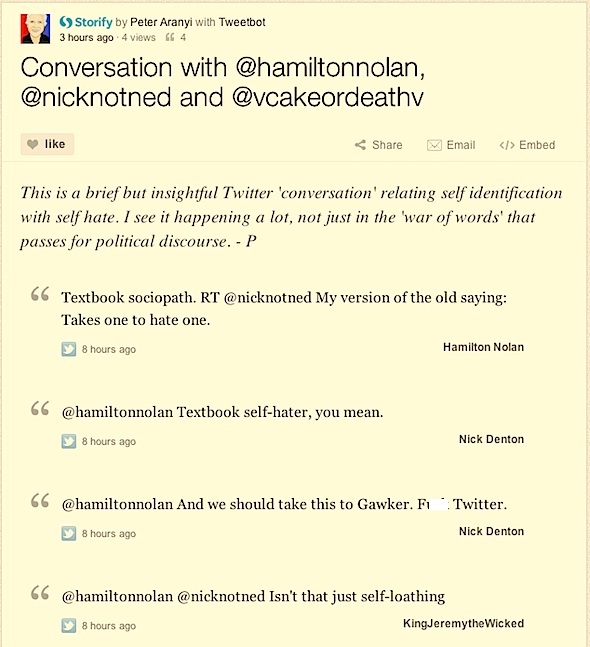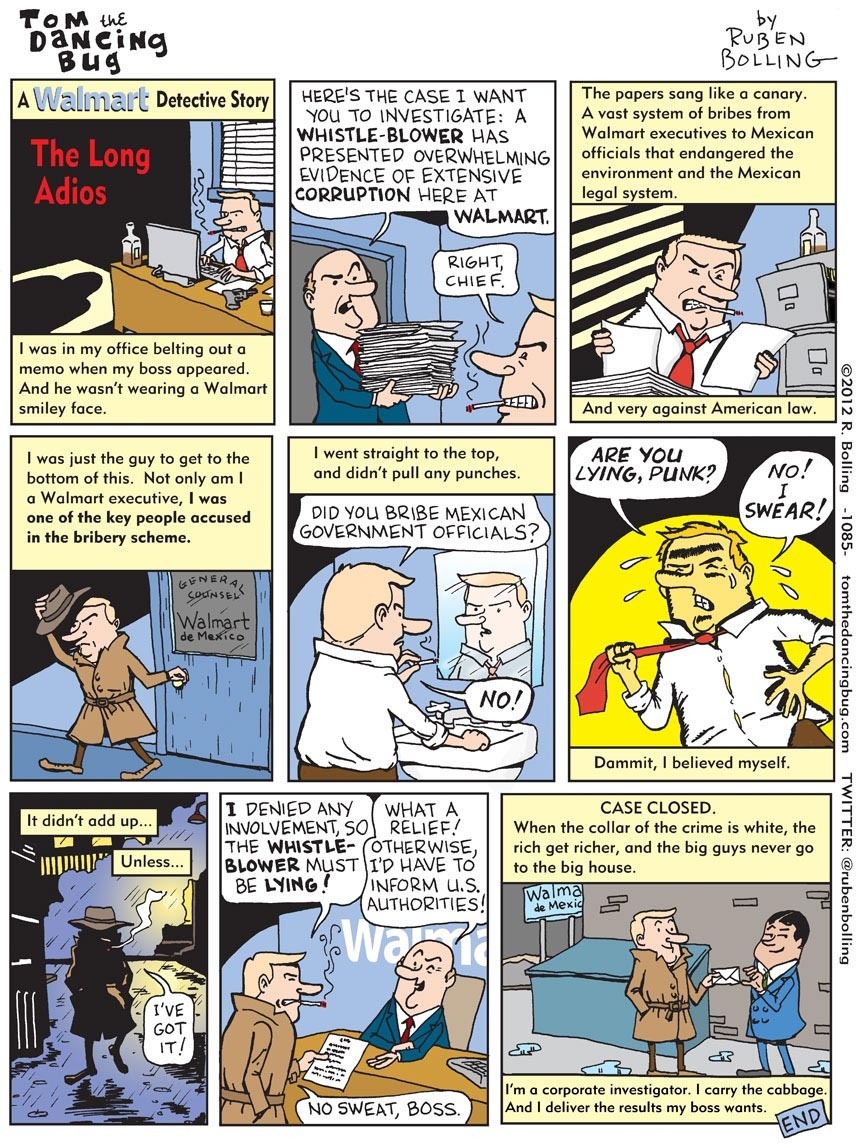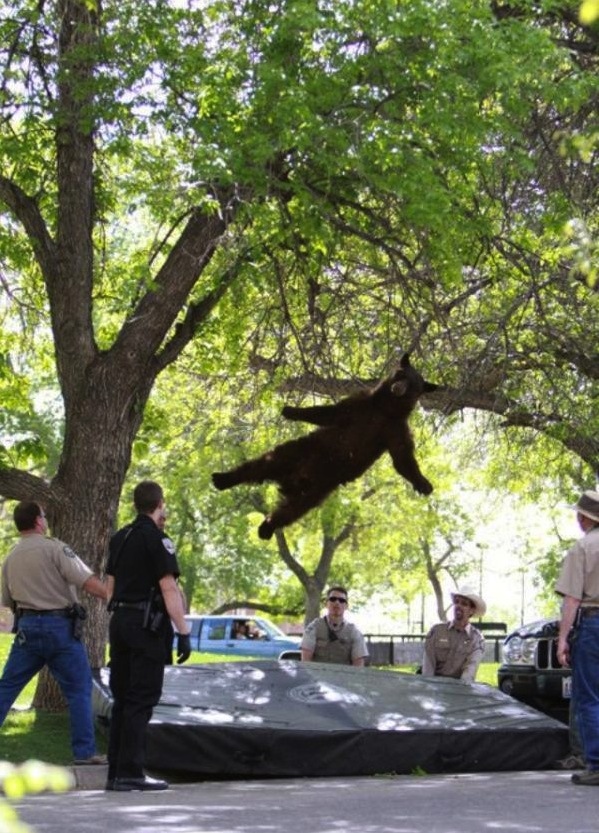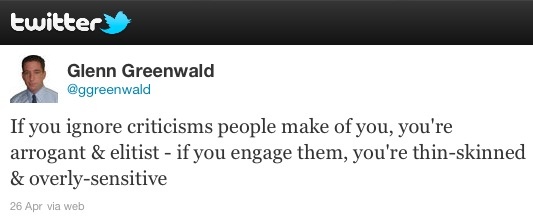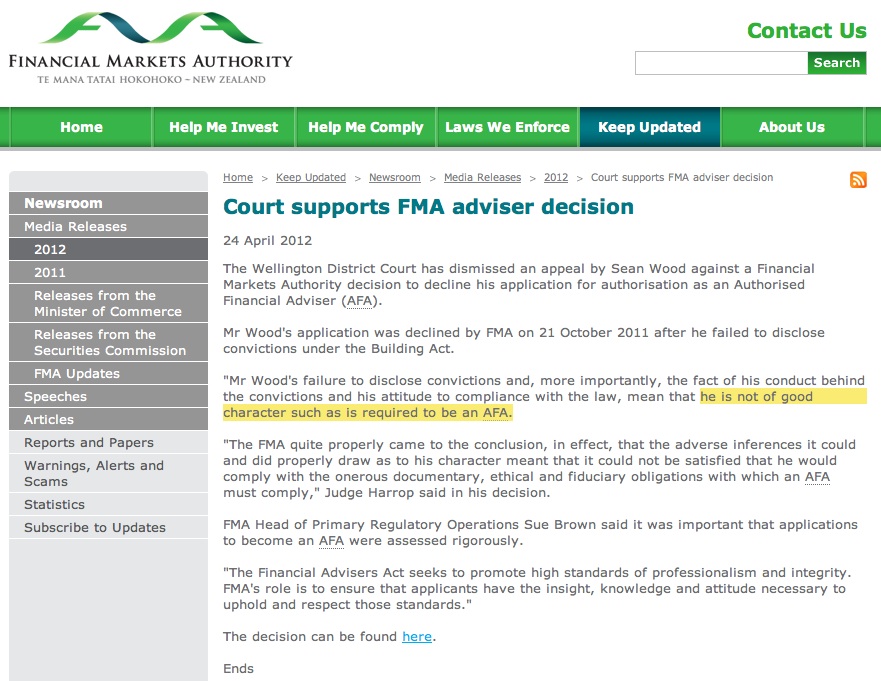This conversation, spurred by a reworking of the old saying ‘It takes one to know one’ got me thinking this morning:
I reckon Nick Denton is RIGHT. (‘Takes one to hate one.’) Or enough right that it’s worth doing a self-audit, so:
How much of my own intolerances are a result of my ‘dislike’ of my own weaknesses or past weaknesses in any particular area?
This is another dimension of the sort of psycho-babble I find interesting such as The Paradox of Animosity examining the thought: Choose your enemies carefully, because you will become like them.
There’s no question that the dubious moral justification for dodgy deeds that Chris Trotter referred to recently (broadly: ‘They’re crooked, so we’re justified in being crooked too’) is a human moral affliction far wider than political discourse — it’s deployed to justify all sorts of dishonest actions, not just debate.
The idea that a kind of angry hyper-sensitivity (amplified intolerance?) is a result of self-loathing is certainly another spin on the cliché about reformed cigarette smokers (addicts) becoming highly intolerant of smokers.
Q: Does my intolerance of [fill-in-the-gap] — besides being just argumentativeness — stem from some aspect of myself that I don’t happily accept?
Hey, don’t misunderstand: I’m not agonizing over this, just interested in the idea. Any thoughts?
– P

